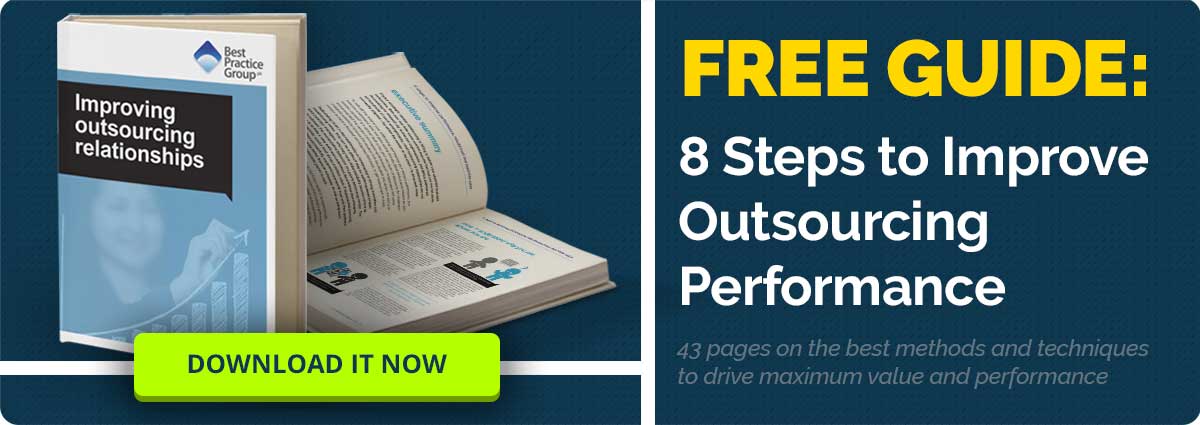
The last few weeks have been really challenging for outsourcing firm Interserve. A quick look through recent BBC headlines on the business says it all – ‘Crunch week for Interserve’, ‘UK outsourcing giant faces crunch vote’, ‘Interserve on the brink’, ‘No sign of Interserve’s biggest investor’, ‘Interserve faces administration’, ‘Interserve’s stock market decline’, ‘Interserve failure raises questions’, ‘Interserve completes fast-track sale’.
Another one of the UK’s leading government contractors has gone into administration. Interserve, with its 130 plus years of trading history, its 68,000 global workforce in 40 countries around the world on contracts for over 7,500 clients, where the company ‘cleans schools and hospitals, runs catering and probation services, and manages construction projects’ has had its ownership officially transferred to its lenders after what has been reported as a long period of financial troubles.
Who are Interserve?
The company that would become Interserve was started by brothers Edmund and Augustus Hughes some 135 years ago, in 1884. Their business was the movement of cargo from one ship to another along the London docks. However they also built a reputation for being specialist dredging contractors. At the turn of the 20th century, the company expanded into supplying stone for road building and their dredging business took on contracts in South America, the Middle East, Europe and Asia. During the world wars the company turned its skills to ship repair and maintenance, among other things.
In the second half of the 20th century, the company moved into construction, disposal work, road building and engineering. By the millennium, the business had entered the FTSE 250. Interserve went on a buying spree, acquiring stakes in a number of other international businesses. And all seemed to be going positively until the share price decline of the last 4-years. This took the company on a fairly consistent downward trajectory from 730 pence per share in March 2014 to just over 6 pence per share in March 2019.
Today, Interserve has thousands of public and private sector contracts. With the events of the last few weeks, many on both the client-side and the company’s workforce will no doubt have questions to ask and be nervous about what comes next.
What happened to cause such challenges for this organisation?
According to The Guardian newspaper “Interserve ran into financial difficulty after delays and cancellations to key construction projects, as well as an unsuccessful foray into waste-to-energy projects that left it with huge debts, requiring refinancing to avoid failure.” 6
According to the FT, the major signs and causes were:
- The waste project costs that were underestimated at he beginning of 2017
- A profit warning in the third quarter of 2017
- A breach of bank covenants at the end of 2017
- A survival deal that was struck with the company’s creditors in the first quarter of 2018
- Followed by losses widening
- And finally an admission of debt being higher than expected.
Days after the company went into administration, the Parliamentary Secretary for the Cabinet Office, Oliver Dowden, responded to the questions on the situation with Interserve by stating:
“… Schools continue to be cleaned, roads continue to be repaired and improved, and services in Government buildings continue to run as normal.I reassure hon. Members that nothing in Interserve’s refinancing will affect the delivery of public services. No staff have lost jobs and no pensions have been affected. The company has executed a contingency plan that it had prudently developed in case shareholders rejected the proposed refinancing deal. This was a pre-agreed transaction, known as a “pre-pack” administration. Hundreds of pre-pack administrations are performed every year, including by well-known companies. It is a well-established and normal process, typically used when a shareholder is blocking a business’s restructuring.”
Who now owns Interseve and why?
When Interserve shareholders voted on a rescue deal, it was rejected (by 59.38% AGAINST to 40.62% FOR), so the company had no other choice but to apply to the High Court to go into administration.
The company already had a plan in place for such an eventuality. This was a pre-pack administration which immediately instructed EY as the administrator and all the company’s assets were moved to a separate legal entity. This had three key impacts:
- Firstly, that thousands of smaller shareholders saw their shares become worthless.
- Secondly, that this move was supposed to protect projects and jobs in the company so it could be business as usual, at least in the short term.
- And finally, that the company was now officially owned by those who had lent it money, namely, RBS, HSBC, Emerald Asset Management and Davidson Kempner, to name but a few.
A spokesman for the Cabinet Office said: “We welcome this announcement. It brings the company the stability required for it to compete for future business and continue to deliver good value public services for the taxpayer.”
8 tips to protect your company’s interests should your supplier look like they are having financial challenges
Interserve is by no means the only outsourcing company to succumb to difficult times recently and there are reportedly others out there that are suffering in relative silence. So, should your ICF (Intelligent Client Function) team identify an issue with your supplier that could mean they may go the way of Carillion and now Interserve, you may wish to consider the following tips:
1. Independent disaster recovery process
No organisation is immune to the possibility of such a disaster impacting them. While some suppliers go through profit warnings and downturns and recover without issue, others may burn bright then fall from grace without much notice at all. That’s why it’s so important to be prepared, to have a disaster recovery process in place, to have a plan of action ready and available, so that should the worst happen you have something you can rely upon. This will involve not only having a process in place, but also an alternate, a backup supplier that is ready, willing and able to take on the responsibility of supporting your services.
2. Risk management
Your client-supplier relationship determines your risk profile and therefore your ability to identify issues, or the potential for issues, early enough to deal with them. How carefully did you adhere to your documented and qualifiable risk assessment diligence during your procurement process when on-boarding your supplier? What was your process to develop a contract that was clear, fair and had an agreed escalation process in place should challenges occur? To what degree does your payment structure align to your service quality? And, do you have a close enough relationship with supplier-side team members to both understand their motivations and get early warning signals, should issues occur internally or externally that a little insight might mean the difference between discomfort and on-going challenges?
3. Financial due diligence analysis
It is more important than ever in the current economic and outsourcing environment to ensure that your supplier is a financially viable partner. Your due diligence needs to be handled with even more attention than usual, because mistakes in this highly charged atmosphere can mean stronger ramifications against individuals as well as organisations. Are your suppliers up to the job and how confident are you that they are financially secure enough to last through to the end of your agreement with them? Do you have regular financial due diligence checks every six months as part of your service reshaping process?
4. Grab the talent while you can
Of all the people working on your project, there will be a few who stand out as the ones who have the greatest positive impact in delivering your services, the ones you rely on most. But should your supplier find themselves in difficulty, it is more than likely these individuals will be the high-fliers that will be picked off first by the competition, enticed away by better prospects, more money, responsibility or just security in their workplace. Not only will a drip-drip from the talent pool be a sign of troubles at home for your supplier, but it might also be an opportunity for you, subject to contractual solicitation restrictions and ‘expert responsibility’ constraints, to put in a few offers of your own to retain the people who you rely on most.
5. Consult your exit management plan
You will likely have a well governed and regularly updated (ideally, every 6 months as part of your service reshaping process) exit and transition management plan inherent within your existing contract terms. Should you get even a sniff of a terminal issue with your supplier, then you should have enough confidence in this plan to be led by it.
6. Data protection
GDPR, the new EU data protection regulation, requires us all to be that much more aware of the security that surrounds the personal information we’re all responsible for. Should your supplier have access to any personal data that you’re responsible for securing, then as soon as you get wind of issues you must activate your GDPR protocol for such circumstances and look to protect that data. The fines for not doing so are potentially uncomfortably high and it’s poor practice that is likely to impact your wider reputation.
7. Outstanding payments
In the unfortunate event that your supplier is unable or unlikely to be able to sustainably continue with your services, what would your financial exposure be? Have you paid your supplier in advance of any work or do you usually pay them in arrears? Are there any performance or bonus payments due, or have you held back some of the money? If you owe your supplier but they are not in a position to complete their commitments to you, seek appropriate advice on whether you can legitimately hold onto those funds to offset the not insignificant costs of instructing and on-boarding new supplier.
8. Duty to warn
A supplier’s duty to warn you of anything that may prevent them from completing their commitments to you, or could impede the results they have led you to believe were possible, is likely implied in law, even if not expressly detailed in your contract. While this is not something you should rely upon instead of diligently constructed contractual agreements that look to protect all parties in all reasonably foreseeable circumstances, it is something you can both expect from your supplier and fall back on for legal recourse should you need to.
Conclusion
The government seems confident that it will be business as usual for Interserve employees and customers and that the company’s financial issues have come to their natural conclusion with this shift in ownership. However, even if all jobs and projects are secure, the shockwave of yet another major outsourcer collapse is just fuel to the fire for some to justify renewed attacks on this long-held cross-party strategy.
The GMB union is reported to have said that it is now “time to turn the tide on the disastrous experiment” of outsourcing public services.
And Labour’s Cabinet shadow minister Jon Trickett is reported to have said “This latest disaster, which could have been avoided, shows that the Government is not prepared to change their dogmatic attachment to outsourcing, and it is costing the country dearly.” We will keep a close eye on progress as events evolve and we intend to write a number of articles in the coming weeks to look a little deeper into the lessons learned from Interserve to help you to avoid being caught up in a similar situation.
Photo credit: iStock


